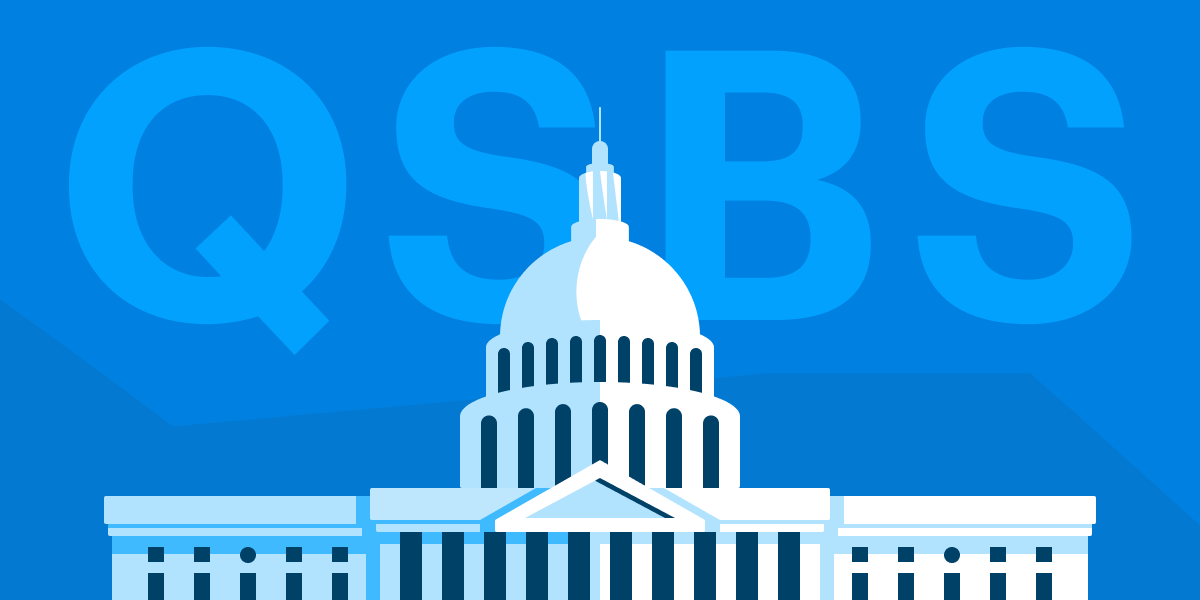Small businesses are a key part of the U.S. economy: They drive job creation, innovation, and new opportunities for their employees. Building and investing in small businesses also generates returns that can be reinvested—whether that looks like sending kids to college, starting a new business, or funding other small businesses across the country.
The qualified small business stock (QSBS) exclusion, an amendment to the U.S. tax code first passed in 1993, limits capital gains taxes for the founders, employees, and investors in small businesses. Starting in 2009, the exclusion was widened to include C corporations with less than $50 million in assets, 80% of which must be used in the “active conduct of 1 or more qualified trades or businesses.” This includes the vast majority of early-stage technology startups. The QSBS exclusion exempts most startup employees and founders from paying capital gains taxes when selling their equity, so long as they’ve met certain conditions, including holding their stock for at least five years. It was passed during the Clinton administration and expanded during the Obama administration specifically because small businesses create jobs.
On September 13, House Democrats proposed to reduce the QSBS exclusion. The proposed change, which is part of the larger House Build Back Better Reconciliation Bill, would limit the tax incentive for equity owners–employees, founders, and investors–to start, work at, or fund a startup and increase the taxes they pay when selling their ownership stake. This provision would apply to sales and exchanges after September 13, 2021.
Curtailing the QSBS exclusion will diminish incentives to fund early-stage growth companies and the jobs they create. It will prevent employee-owners from realizing the full value of the ownership they have earned. And it will remove a key investor incentive to support fledgling, potentially high-growth companies.
Creating jobs
The QSBS exclusion was designed to encourage investment in small companies with high growth potential, and to incentivize the founders and employees who build them. Today, we refer to these businesses as startups.
High-growth startups are responsible for a significant portion of new jobs in the United States: Over the past decade, they have accounted for nearly 30% of all U.S. employment gains. That’s why the QSBS exclusion has seen bipartisan support for nearly 30 years; when they’re successful, startup founders are job creators. But by starting their own businesses, they’re also the ones taking the biggest risk: Most founders leave successful careers to start their companies. The tax code should continue to incentivize their entrepreneurial endeavors, or we risk losing a prime driver of economic development.
When investors are incentivized to back startups, they’re equipping founders and management teams with the capital they need to hire talent, build products, and grow into sustainable, mature businesses. The QSBS exclusion enables investors to realize the full return on an inherently risky investment. Suppose an investor is deciding between putting money into a well-established public company or a new, unproven company. By limiting taxes on these riskier investments, the QSBS exclusion effectively places a premium on a startup investment.
Making employee-owners
To succeed, businesses must attract the best talent and build the best teams. Early-stage startups often cannot pay the same salaries that large corporations can offer. They can still compete for talent, however, by offering the appealing equity that comes with joining an early-stage company. When more employees have an ownership stake in their companies, they participate in the profits they help create and have more opportunities to invest in their personal futures.
Policymakers should encourage this equity ownership. We want employees to join and help build these companies. And if a company succeeds, its owners—the investors that funded its innovation and growth, as well as the employee-owners who helped build it—deserve the reward. Our innovative startup economy depends on these equity incentives.
In the case of QSBS, this is money that employees have been planning their lives around for five or more years. Starting immediately, if these employees want to go through with their plans to finally exercise the equity they’ve built in their companies, they would be abruptly and heavily taxed–as much as 25% under the proposed changes.
Employee-centered tax policy
For these reasons, Carta encourages policymakers to maintain the existing QSBS exclusion. We have also joined with industry leaders to protect the existing framework. The proposed change will diminish an important incentive to support the startup ecosystem and the jobs it creates, as well as lessen the financial upside these businesses are able to offer their employees. If a goal of our country’s tax policy is economic opportunity, it should maintain tax incentives that spur innovation and create more ownership of private companies. The QSBS exemption does both.
At Carta, we believe in employee ownership. The QSBS exemption has expanded the value that employee-owners can realize in the businesses they build. Curtailing the QSBS exemption might raise revenue in the short term, but it would be at the cost of diminishing the value of employee ownership and tamping down investment in startups and early-stage companies.
For updates on the QSBS exemption and other public policies that impact the private markets, sign up for Carta’s Policy Weekly Brief:

